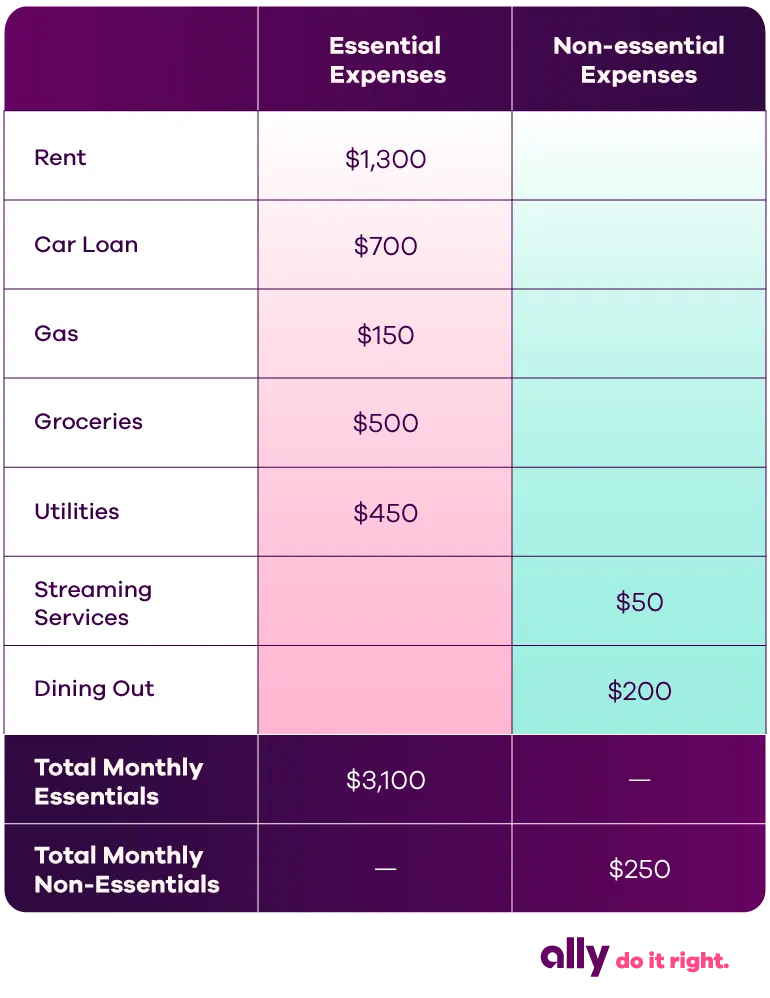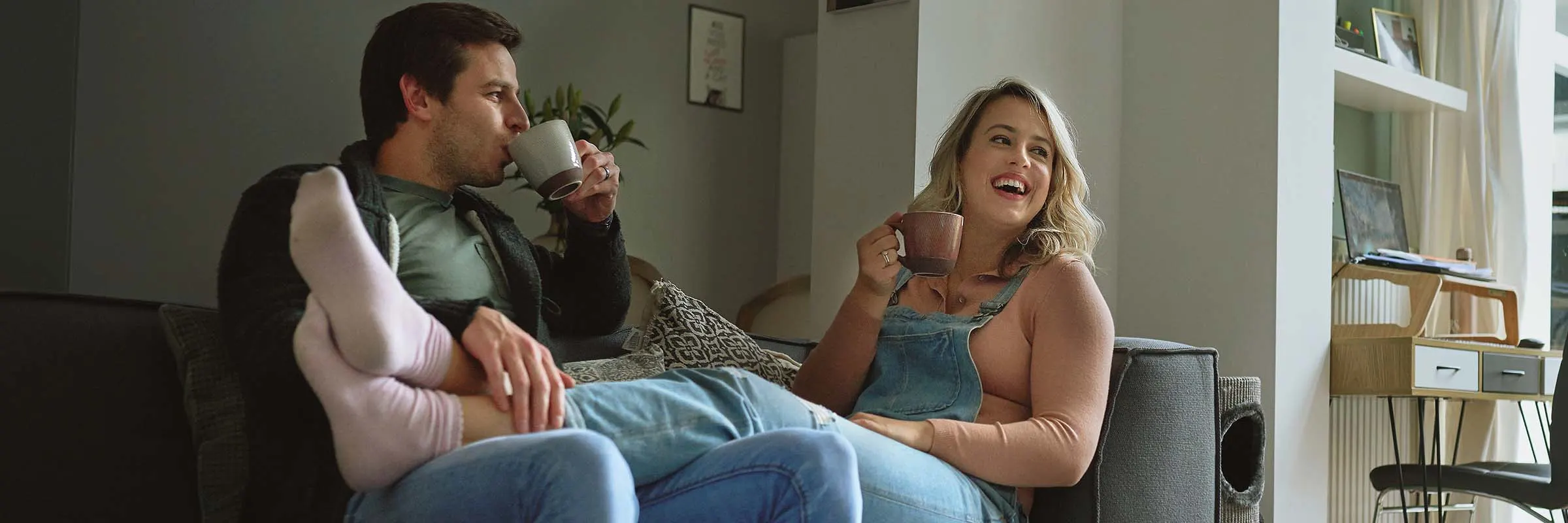What we'll cover
The expenses an emergency fund should cover
How to calculate the amount needed
How many months of savings to set aside
When it comes to emergency funds, one size does not fit all. The amount you'll want to save depends on factors like your income, monthly costs and if you have any dependents. So, how much do you need in your emergency fund?
What to consider when determining the amount
The general guidance is to have three to six months' worth of essential expenses set aside in your emergency savings. Essential expenses are those things that you truly need to live: a rent or mortgage, utilities, groceries and transportation.
Essential vs. non-essential expenses
Anything you could live without (such as dining out or entertainment) shouldn't be considered when calculating how much to save in your emergency fund. To better understand how your expenses are split, it can be helpful to visually sort them in a chart:

Read more: How to visualize your savings goals with buckets in an Ally Bank Savings Account.
Should you save for three or six months’ worth of expenses?
Once you've sorted your expenses, take your monthly essential expenses ($975, in the above example) and multiply it by the number of months you decide to save for (six) to help determine how much you should have in your emergency fund: $975 x 6 months = $5,850.
Don't worry if these amounts don't seem reasonable. Your own numbers might look very different, and keep in mind that it takes time to build up an emergency fund. Just focus on consistently saving.
Now, you'll need to figure out how much to save each month to reach your goal. An easy way to do this is to subtract your monthly expenses from your monthly income to determine how much you have left over each month. If you feel discouraged, think in small amounts first. With automated tools like Surprise Savings (a feature of Ally Bank's Savings Account), we'll analyze your linked checking account to identify small savings amounts and transfer those funds to your savings account.
Essential expenses are those things that you truly need to live: a rent or mortgage, utilities, groceries and transportation.
It can be hard to plan for an emergency, but there are ways to account for major expenses coming down the line. To set a personal savings goal, consider your current financial situation, including:
Job market and personal job security
Household income
Health insurance coverage and stability
Current lifestyle expenses
Upcoming repairs on an older vehicle or home
Best places to keep your emergency fund
Now that you have an idea of how much to save, your next question might be where to keep your emergency savings. You have a number of options:
A savings account allows you to easily withdraw your money without penalty and earns compound interest on your original principal and your accumulated interest.
A certificate of deposit (CD) offers a fixed interest rate on your savings, but it's harder to access your money without facing a penalty.
Your checking account allows you to access your money whenever you would like, but you might not earn any interest (or the interest rate might be low).
A money market account pays interest and provides easy access to your funds, but you may have to maintain a minimum balance.
To make saving for an emergency easier, you can create savings buckets within your Ally Bank Savings Account. When you can separate your different savings goals, it's easier to achieve them and resist dipping into your emergency-specific fund.
When should you use your savings?
Start building your emergency fund now, and you'll thank yourself when your car needs an expensive repair or you receive an unexpected medical bill. You could even use your emergency savings for surprise costs, like paying a parking ticket or giving yourself money for essentials if you're laid off.
Mistakes to avoid
A major savings mistake is neglecting the importance of emergency savings in the first place. So if you're already setting money aside, you're on the right track. Avoid using your emergency savings for discretionary purchases, and always replenish the fund when needed.
Don't have a cash crisis
Having the right amount in your emergency savings fund can help protect you against a financial crisis. Ideally, you won't run into situations where you need to deplete your emergency savings. If you do need to dip into your emergency fund, don't worry — that's what you saved for!



